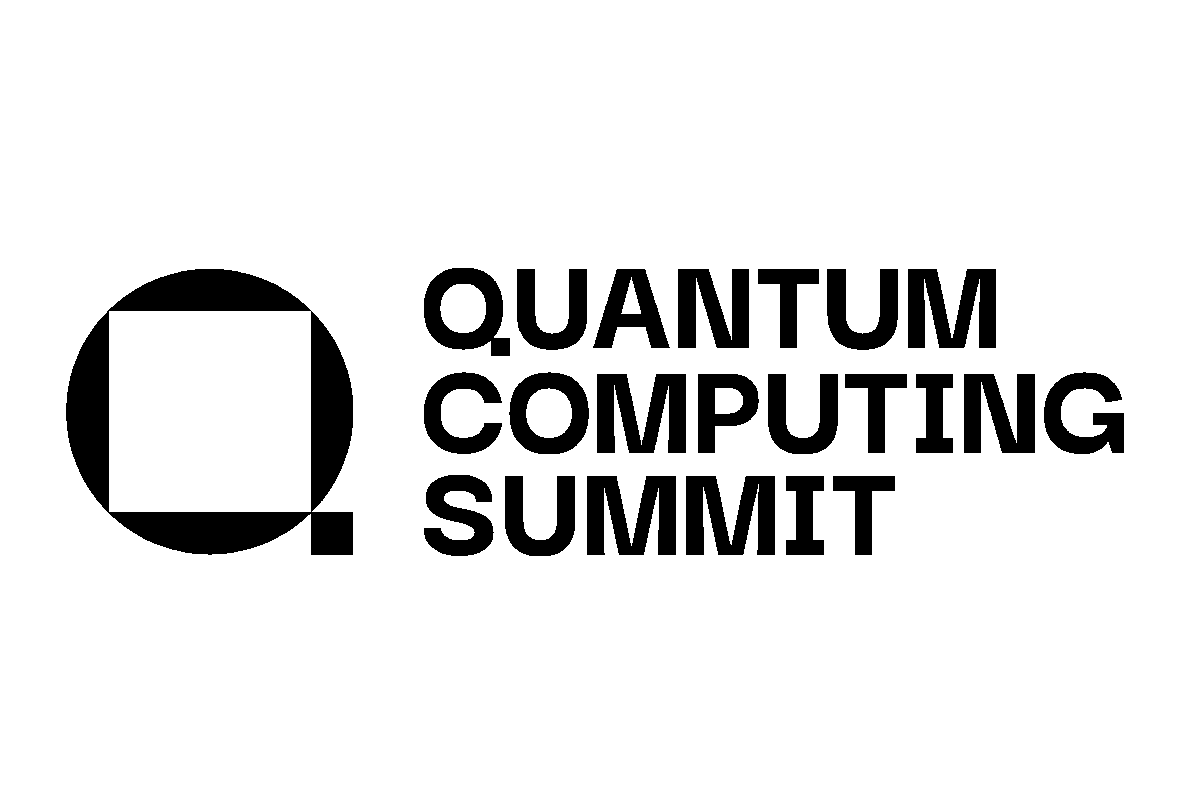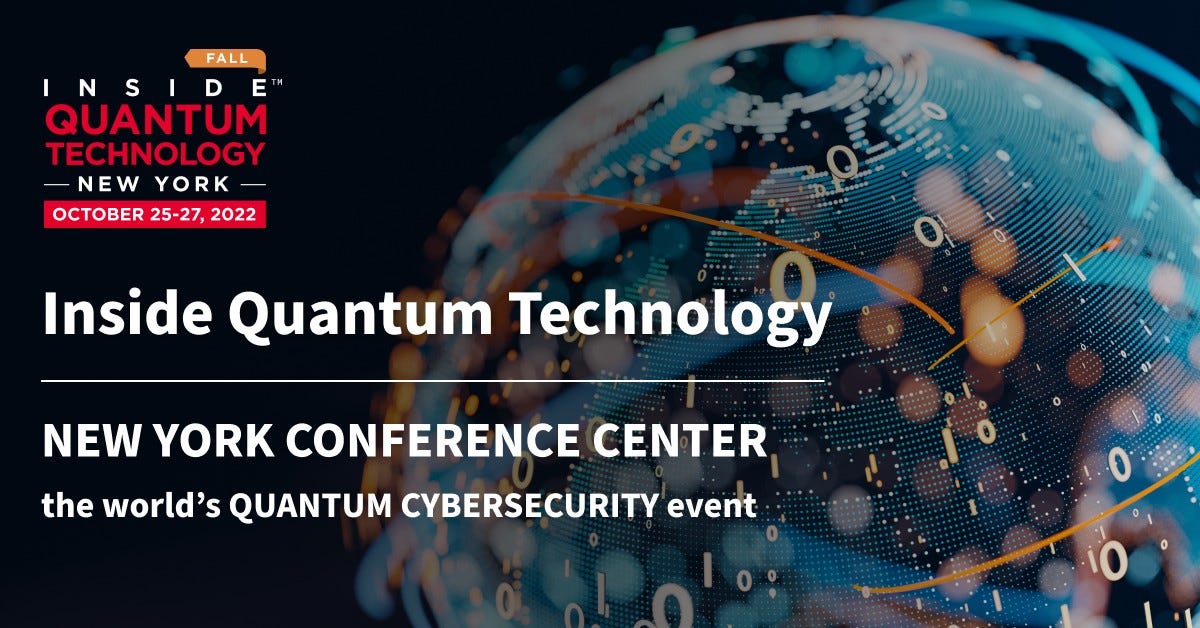Is there a consumer market for Quantum Computing?
Data and predictions for third-party users of Quantum Computing platforms
Jamie Gill from the University of Wisconsin-Madison messaged me yesterday and opened with the line “You’re the data guy, maybe you can help me.” ❤️
Btw, he is taking a trip to Paris and is looking for introductions to the local quantum tech community, feel free to reach out to him if you can help.
The data guy I am and I often get asked to predict the demand for consumers, private end users, for Quantum Computing and find myself responding with things like “in my opinion this will never happen” or “QC is not the iPhone”.
I am pontificating. Zero data. All opinion. 😟
Hence, I will try to explore this question in good old data driven fashion below; here is a look at the consumer market for quantum computing and my predictions.
I will be speaking at the Quantum World Congress in Washington, DC late November and looking forward to seeing all of you in person REGISTER HERE
What is consumer tech?
Consumer technology refers to any form of technology that is intended for use by consumers in the general public, as opposed to technology created for governmental, military or commercial use. Consumer tech comes in a variety of different forms and offers a wide range of technological capabilities, encompassing many of the most commonly seen items that people utilize daily.
By this strict definition Quantum Computing, of course, is not a consumer technology and never will be as it is very much being created for commercial and federal use, even out of government labs as strong drivers of innovation in the field.
That said, there still might be specific audiences that will use QC for their personal goals and benefits, potentially paying themselves, rather than through an employer, agency or institute - this, in my opinion, is what we should talk about when we refer to a consumer market in QC.
As such, I define a QC consumer as someone who:
Does not use QC as part of a formal corporate, federal or R&D project
Covers their QC expenses personally or through a line budget rather than a project or strategic budget
With the goal to learn and explore quantum, and, hopefully, get started on a longer journey
Also, I specifically exclude certain audiences that others might consider as being part of the consumer market, for example larger corporations that start to explore quantum, who, in the end, will most certainly migrate to a hardware vendor.
My ultimate goal here, is to understand if there is a market for third party QC vendors and platforms, to offer QaaS, which certain demographics might prefer over working directly with a leading QC hardware vendor, startup or cloud.
I exclude these “innovation teams” from my hypothesis for a few reasons:
To be successful with QC commercially, I strongly believe that you need in-house quantum math, algorithm and use case capabilities. Quantum is too complex and too strategic to outsource this in the long-term
To build these you need a strong partner. Strong, in the context of quantum computing, truly means world leading. We all read about the quantum workforce challenges and if you want to build those internal capabilities you require a partner that has the resources and skills to do so with you. And very few do.
Lastly, I believe that for commercial success you will need a strong partnership with a leading hardware vendor, as to guarantee access to the latest innovation and a decent spot in their computational queue that allows you to be successful within your requirements
To sum up my hypothesis
QC is not a consumer technology
There will be “private” end-user market in QC
Those looking to apply QC commercially will, ultimately, work with a leading HW vendor
That said, which are these audiences that might want a more user-friendly way to get started with QC?
Academic users. Specifically, academic users that are not PIs and are looking to gain experience with QC. As well as students, researchers and others from smaller academic institutions that have less access to grant opportunities
Software developers. Other new technologies, such as A.I. or blockchain, have huge ecosystems of independent software developers. I do not see this at scale in quantum, for the reasons expressed above. However, there will be a group of senior and highly qualified software engineers looking to train their quantum skills
The Quantum Curious. The curious, the physics students, the ambitious innovation folks - there is a whole population out there that wants to learn about QC and will invest their personal time in doing so
SMEs. Smaller enterprises might not have the initial resources or infrastructure to kick-off a formal project and might explore QC “privately” at the executive level before investing into it, or not
Federal users. Same at the federal level, where we see a lot of senior officials interested in the topic without their agencies having a formal program yet. Many of these will personally invest into their quantum learning experience

Each of these market segments will have their own
Price point
Buying behavior
Needs and goals
Based on indicators from other new technologies, these might look something like this.
For third-party vendors looking to enter this market this means that it might be challenging to build one platform for all, since these 5 market segments end up having fairly distinct behaviors and needs. But, maybe, that is the opportunity as well.
Market sizing
Based on the above target audience and segmentation, we estimate the total addressable market through a bottoms up approach with assumptions around total global populations for each segment.
In essence, we identified the top 14 markets where we are likely to see early adoption amongst those segments. We then assumed a baseline of available users for each. We increased those numbers by 20% for the medium and 50% for the high scenario. We applied a price point that is about 50% above similar segments for A.I. based on our research.
This yields a total addressable market of $600M to $9.6B with a median market size around $4.5B.
We believe our assumptions to be conservative and are happy to discuss our model with interested parties to further refine it.
Our OneQuantum West Coast chapter has a new president, please welcome Bernd.
Conclusions
Is there a consumer market for Quantum Computing? Yes, absolutely!
Personally, I am shocked at how potentially big it is, though fragmented and not easy to capture for potential platform-type vendors.
This goes to show how irrelevant any opinion is, and even though no model is perfect, when you run the numbers you will be surprised by what you might discover.
The above market is only going to grow over the next decade or two as quantum matures and becomes more robust, with proven use cases and applications. A fantastic opportunity for a wise entrepreneur to build, test and improve.
I can’t wait to see who she will be.
#QuantumIsComing





